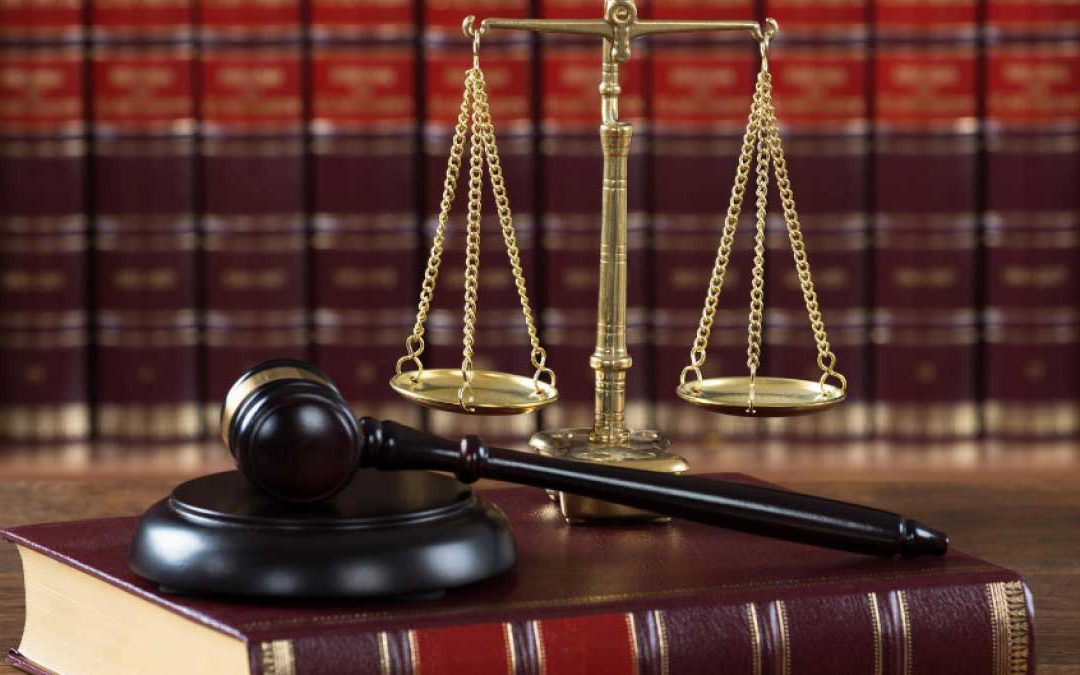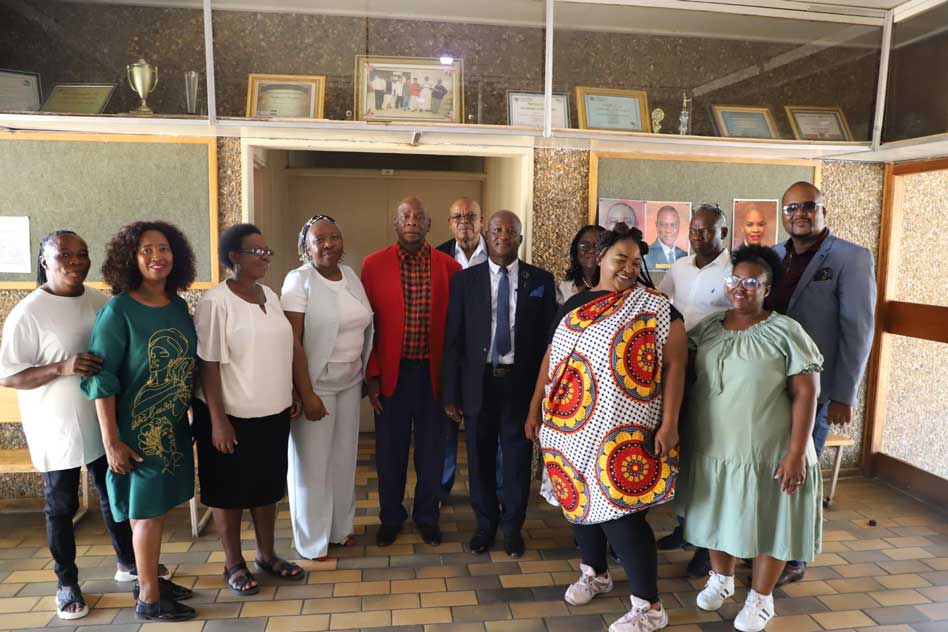
FREQUENTLY ASKED QUESTION
WHAT IS SEPARATION OF POWERS?
Answer : Separation of powers is the division of state authority between the three branches of government prevents a concentration of power or an excess of power in one branch of government. The separation of powers is maintained through a formal division of state authority between the legislature, the executive, and the judiciary. This helps to protect citizens from abuses of state power.
HOW IS THE PREMIER ELECTED OR APPOINTED?
Answer: The Premier is elected into the North West Provincial Legislature through the polls but is appointed by the President.
HOW ARE THE SPEAKER AND DEPUTY SPEAKER ELECTED OR APPOINTED?
Answer : The House elects the Speaker and Deputy Speaker from amongst its members at its first sitting, which must take place within 14 days after the election results have been declared.
WHO ARE THE PRESIDING OFFICERS?
Answer : The Speaker, Deputy Speaker and Chairperson of Committees are presiding officers.
WHAT DOES THE CHIEF WHIP DO?
Answer : The Chief Whip of the legislature coordinates party participation and maintains order in the House. He chairs the Working Committee, which is responsible for the programme of the Legislature. It is composed of Leader of Government Business nominated by the Premier, Whips of all parties in the legislature, Deputy Speaker and Chair of Committees.
WHO IS THE OFFICIAL OPPOSITION IN THE NORTH WEST PROVINCIAL LEGISLATURE?
Answer : The Official Opposition is the Economic Freedom Fighters (EFF) in the North West Provincial Legislature. The EFF is led by the Honourable Matshidiso Botswe.
WHAT IS AN ORDER PAPER?
Answer : The order paper is the agenda of the House and is determined by the Working Committee.
WHAT IS HANSARD?
Answer : Hansard are official records of the House. They are stored electronically in the proceedings folder and hard copies are deposited at the library and copies of Hansard are sent to the National Library for safe keeping. Acts are sent to the Constitutional Court for safekeeping.
WHAT ARE THE 3 ARMS OF GOVERNMENT?
Answer : The Republic of South Africa has the 3 arms of government in all three spheres of government namely the Legislative, Executive and Judiciary. In the three spheres of government it is national, provincial and local (municipal). Operating at both national and provincial levels are advisory bodies drawn from South Africa’s traditional leaders.
WHAT ARE THE 3 ARMS OF GOVERNMENT ON A NATIONAL LEVEL?
Answer :
• Parliament / Legislature: The National Assembly and the National Council of Provinces
• Executive: The President, who is both Head of State and Head of Government
• Judiciary: The Constitutional Court, the Supreme Court of Appeal, and the High Court
WHO OR WHAT IS PARLIAMENT COMPRISED OF?
Answer : The bicameral Parliament of South Africa consists of the National Assembly (four-hundred seats; members are selected by a popular vote under a system of proportional representation to serve 5-year terms) and the National Council of Provinces (90 seats, 10 members elected by each of the nine Provincial Legislatures for five-year terms). The National Assembly is elected using a Proportional Representation system with regional multi member constituencies (MMCs) and one national MMC. Parties put up open lists for either both parts of the system or for the regional MMCs only. Half of the members of the National Assembly are chosen from nationwide party lists, the other from party lists for each province.
WHAT DOES PARLIAMENT DO?
Answer : The National Parliament is tasked to make laws that apply to the whole country, and it is able to make laws dealing with any area that has not been assigned exclusively to the provinces under Schedule 5 of the Constitution.
WHAT ARE THE TWO HOUSES OF NATIONAL PARLIAMENT?
Answer : The National Parliament is made up of two “Houses,” which are known as the “National Assembly” and the “National Council of Provinces” (NCOP). The NCOP was established in the new Constitution to allow provinces to have a direct input in all matters of national concern, and particularly those matters which affect the provinces.
WHAT IS AN MP?
Answer : The representatives in the National Parliament are called Members of Parliament (MPs). At the national level, there are 400 MPs in the National Assembly, and the NCOP is made up of ten delegates from each province. The National Assembly and the NCOP are collectively called the Houses of Parliament.
WHO OR WHAT IS A PRESIDING OFFICER?
Answer : The person who the presiding officer in the National Assembly or in the North West Provincial Legislature, and who is in charge of the proceedings, is known as the Speaker.
WHO MAKES UP NORTH WEST PROVINCIAL LEGISLATURE?
Answer : The elected representatives of the people of the North West Province make up the North West Provincial Legislature and these are known as Members of the Legislature (MPLs).
WHO IS THE MAJORITY OR RULING PARTY IN THE NORTH WEST?
Answer : The party that wins the most votes obtains the most seats in the Parliament or legislature, and becomes the “majority party”. The party majority party gets the chance to govern the country or the province for a period of five years. In the North West Provincial Legislature the ruling party is the African National Congress.
HOW IS THE PRESIDENT OF THE COUNTRY DECIDED?
Answer : At the national level, the majority party elects the President, who then appoints Cabinet Ministers from the MPs of the majority party to form the national government.
WHAT HAPPENS TO THE PARTIES THAT ARE NOT THE MAJORITY OR RULING PARTY?
Answer : The parties other than the majority party who have been elected to the Parliament or Legislature are collectively known as the “opposition”, and the opposition party which has won the greatest number of seats is known as the “official opposition” party. The leader of the “official opposition” party is called the “leader of the opposition”. Opposition parties play a vital role in a democracy, which is to ensure that the government does not abuse its position of power in any way, to raise issues, and to express alternative points of view on matters before the House.
HOW IS THE PRESIDENT DECIDED?
Answer : The leader of the political party or coalition of parties that wins a majority of the seats in the National Assembly is named President. The President and the Ministers are responsible to the Parliament, of which they must be elected members.
HOW OFTEN ARE ELECTIONS HELD?
Answer : General elections (national) are held at least once every five years. The voter has one vote only for the National Assembly. The last general election was held on the 8th May 2019.
WHO IS THE NATIONAL EXECUTIVE?
Answer : The national executive is the second arm of government and comprises the President, Deputy President and the Ministers who make up the executive branch of the South African state. The President of the Republic of South Africa is his Excellency, the Honourable Cyril Ramaphosa. The President and the Cabinet Ministers are called the “Executive”, because they are responsible for “executing” the laws made by Parliament.
WHAT IS A MINISTER?
Answer : Ministers are Members of Parliament who hold a ministerial warrant to perform certain functions of government.
WHO IS THE HEAD OF THE NATIONAL EXECUTIVE?
Answer : At the national level, the head of the Executive is the President, who is assisted by the Executive Deputy President. The President is assisted by the Cabinet Ministers.
WHAT DOES A CABINET MINISTER DO?
Answer : Each Cabinet Minister is given responsibility for a particular government department, and they are answerable to the Parliament for the operation of their department. For example, the Minister of Education heads the National Department of Education, and is answerable to Parliament for the operation of the Department of Education.
WHAT IS THE JUDICIARY?
Answer : The judiciary is the third arm of government and independent from the other arms of government. The responsibility of the judiciary is to interpret the laws, using as a basis the laws as enacted and explanatory statements made in the Legislature during the enactment.
WHAT IS OUR JUDICIAL SYSTEM BASED ON?
Answer : The legal system is based on Roman-Dutch law and English common law and accepts compulsory ICJ jurisdiction, with reservations. The constitution’s bill of rights provides for due process including the right to a fair, public trial within a reasonable time of being charged and the right to appeal to a higher court.
WHAT ARE THE MAJOR TIERS OF OUR JUDICIAL SYSTEM?
Answer :
There are three major tiers of courts:
• Magistrates Courts – The court where civil cases involving less than R100 000, and cases involving minor crimes, are heard.
• High Courts – The court of appeal for cases from the magistrates courts, as well as the court where major civil and criminal cases are first heard.
• Supreme Court – The final court of appeal for matters not pertaining to the constitution.
• Constitutional Court – The final court of appeal for matters related to the constitution
DO ANY OTHER COURTS HAVE JURISDICTION OVER CONSTITUTIONAL ISSUES?
Answer : A High court may decide any constitutional matter, except a matter over which the Constitutional Court has exclusive jurisdiction or a matter assigned by an Act of Parliament to another court of a status to that of the High Court. The Supreme Court of Appeal may decide appeals in constitutional matters. It is the highest court of appeal in non-constitutional matters. The Supreme Court of Appeal, a High Court, or a court of similar status may make an order concerning the constitutional validity of an Act of Parliament, a provincial Act or any conduct of the President. However, an order of constitutional invalidity has no force unless it is confirmed by the Constitutional Court
RECECENT POSTS

North West Legislature Portfolio Committee on Community Safety Concerned over Kingpin’s Escape – Raising Alarming Concerns over Police Involvement in Illegal Mining
The North West Legislature Portfolio Committee on Community Safety and Transport Management led by Hon. Freddy Sonakile is...

The Honourable Dr. Mohono was in the Moses Kotane Local Municipality area, at Sewagodimo Senior Secondary School and Gobusamang Primary both in Pella near Rustenburg.
As part of the North West Provincial Legislature School Readiness Oversight Programme, the Speaker of the North West Provincial...
E- PETITION
E-petitions are an easy way for you to make sure your concerns are heard by Government and Parliament. E-petitions enable members of the public to petition the Legislature and press for action from the government.

